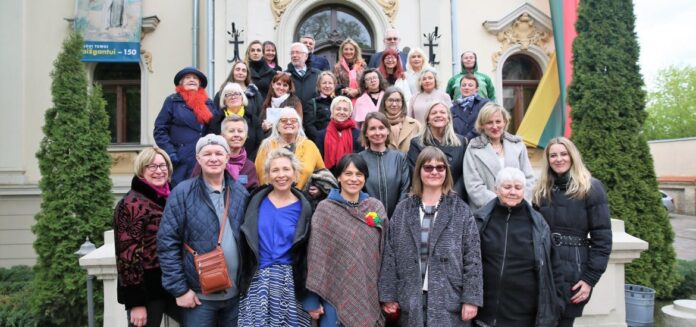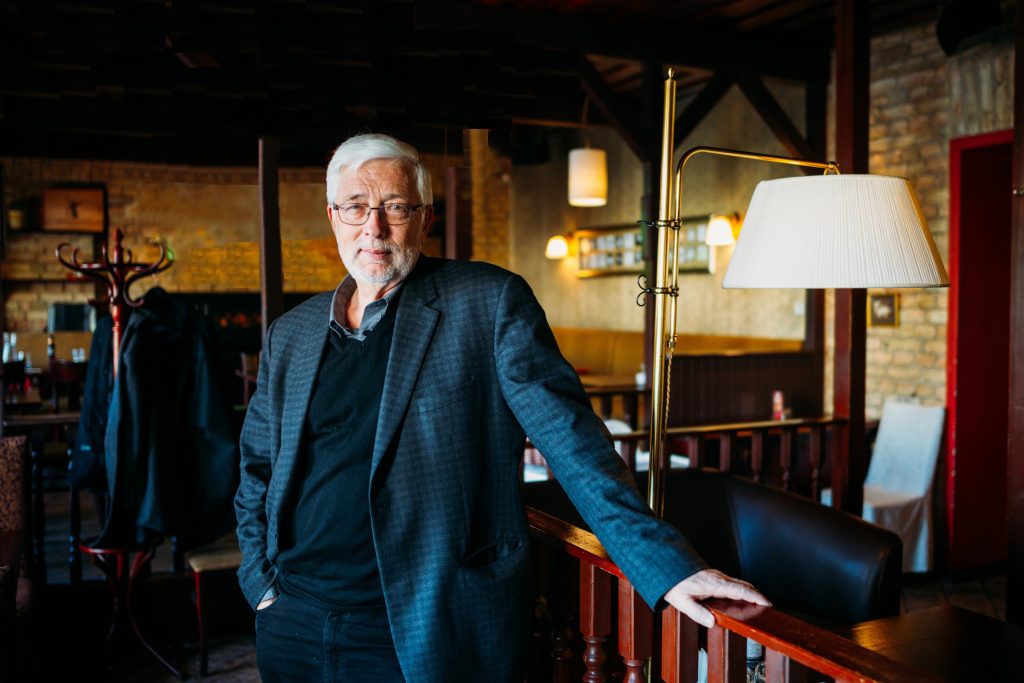
Antanas Šileika is a Toronto-born Lithuanian Canadian who has published a number of novels in English. Most of them have been translated into Lithuanian, and by now he is also well-known in the country his parents fled from as refugees from the Soviet occupation. What makes him a Lithuanian author? At a recent Writers’ Conference in Lithuania, Šileika offered some thoughts on writing in the diaspora.

In Lithuanian literature of the diaspora, although narratives and heroes may be “Lithuanian”, what emerges is often not as much the spirit of Lithuanian (lietuvybė or lietuviškumas), as human commonality, what is dear to the heart and understandable to readers of other cultures, living in a particular era. My work is not only about Lithuania and its history, but more about how the experience of having Lithuanian roots helps understand the world we live in. My heroes are able to cross the borders of time and ethnicity.
As a Canadian author of Lithuanian descent who grew up in a family of immigrants, I live and work in Canada, write in English, and love English literature. Yet my themes, especially in my newer novels, are connected with Lithuania. Why? Who reads my novels? For me, as a child of immigrants, the drama of Lithuanian history and its sub-themes was never foreign to me psychologically. I had no desire to create a sadly nostalgic or politically motivated narrative about Lithuania but preferred a realistic approach.
Lithuania is a nation brimming with historical dramas. There is a wide range of thought-provoking material to choose from. My parents’ generation suffered the shock of war and emigration, and it is paradoxical that their difficult path in life did not smother my urge to write, nor did it force me to distance myself. On the contrary, it enriched me, and, in fact, motivated me to learn about the repercussions of it all. First of all, I also live in exile. More precisely, exile is my heritage, the carapace of my life, disconnected though it may be from authentic Lithuanian experience. I am exiled not only from Lithuania, but from its historical time. Once upon a time, exile was a source of inspiration for a writer, but in time it became obvious that there was not enough written and spoken about the emotions of a second generation of exiles. Sadly, as international political violence has shown, this emotion does not disappear, but turns into a monster.
Secondly, I grew up in the post-war period and even as a child I felt what it means to be an immigrant from a country that no longer exists on a world map. This syndrome of the “unseen” incited me to become a writer. I wanted to be seen, to validate my existence one way or another. All ambitious writers hunger to see their names on the covers of books, but I was in fact desperate not only to convince others of my existence, but to reclaim my real identity. Of course I was not alone – there were Estonian, Ukrainian and Latvian immigrants around me. In my youth we even had a basketball club called the “Vanished Nations League”.
Thirdly, I was fortunate to learn a workable level of Lithuanian, to be able to read it and converse without an interpreter. Eventually it helped me open a window onto Lithuanian history. To my great delight I was able to find a wealth of material for my writing – live accounts, stacks of autobiographies, diaries, and memoirs.
Who reads my stories? My readers are Canadian and American, although the latter are a smaller audience. They were always intrigued by the exotic aspect of Lithuania – for a long time it was and still is a obscure land of mystic legends. It is not so much the “exotic” as the “different” that attracts them. Our differences are what makes us all interesting to one another.
Self-alienation, leading to emigration, is different from forced emigration, although their traumatic after-effects may be similar. Millions were forced to leave their homes because of war, millions killed or scattered throughout the world like pieces of a jigsaw puzzle… Sometimes I think that my generation was lucky. As if, after a storm that shattered our ship, we reached a corner of paradise where we could settle into a quiet, peaceful life. For my family, that was the town of Weston in Canada where we were a minor percentage of DP’s from Europe. It seems that I remained a DP all my life, thinking of my birthplace in Canada as a place that was not “mine”. I remember Salman Rushdie’s essay about homelands of the imagination. Rushdie stated that we see our world through images produced in our own imagination, and nothing more. And I did that, creating and recreating my “Lithuanian homeland”, according to what I thought it should be. I felt I had a right to this spiritual imagery, which I would not experience were I not a DP. My “homeland” was also the entire British Commonwealth – a much wider heritage. With little effort I could hear familiar voices from India, Australia and South Africa. Homelands of the imagination for Rudyard Kipling, Arthur Conan Doyle, Elizabeth Nesbitt, and H. G. Wells were mine also. Their language was my language.
I began creating my Lithuanian “homeland” from my parents’ stories, but they were always quite sad, and in the end were theirs, not mine. I continued to search for it in history books, and finally settled in the homeland of my own imagination, because I know it can become real, and waits for me like an armchair by the fireplace on a cold winter night. It accepts me, nurtures me and changes with me.





























